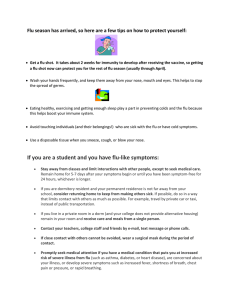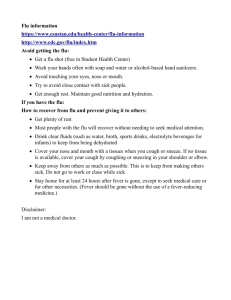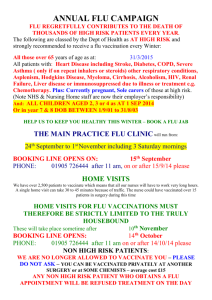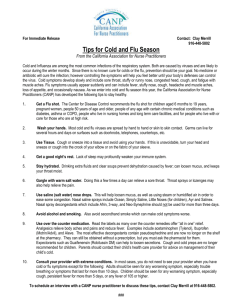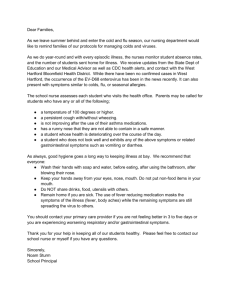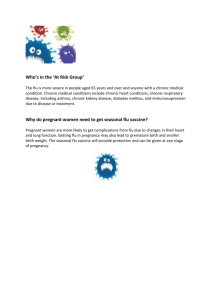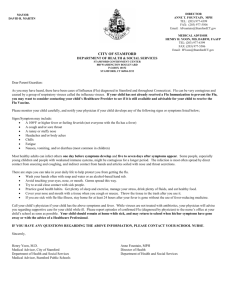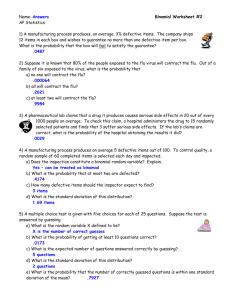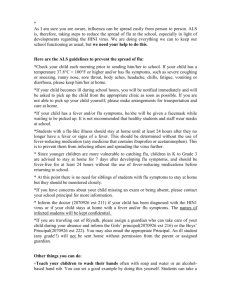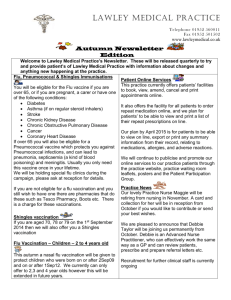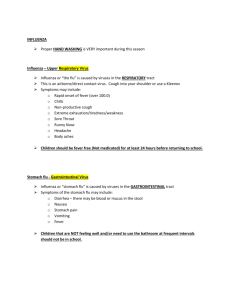When should I call my doctor or the Student Health Center?
advertisement
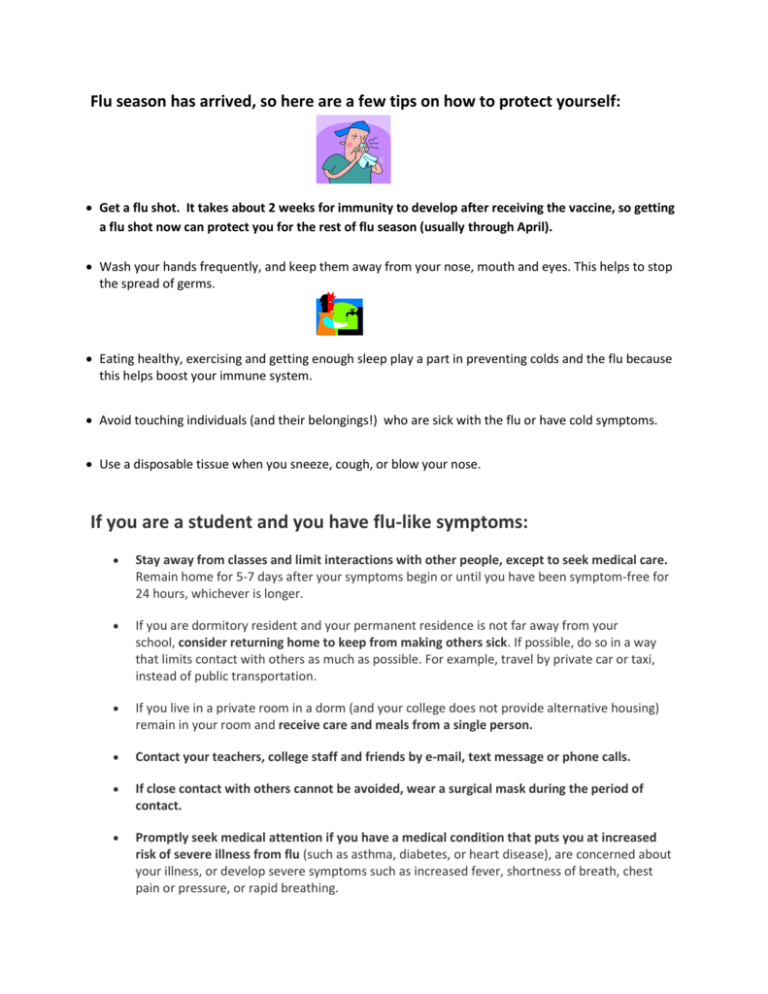
Flu season has arrived, so here are a few tips on how to protect yourself: Get a flu shot. It takes about 2 weeks for immunity to develop after receiving the vaccine, so getting a flu shot now can protect you for the rest of flu season (usually through April). Wash your hands frequently, and keep them away from your nose, mouth and eyes. This helps to stop the spread of germs. Eating healthy, exercising and getting enough sleep play a part in preventing colds and the flu because this helps boost your immune system. Avoid touching individuals (and their belongings!) who are sick with the flu or have cold symptoms. Use a disposable tissue when you sneeze, cough, or blow your nose. If you are a student and you have flu-like symptoms: Stay away from classes and limit interactions with other people, except to seek medical care. Remain home for 5-7 days after your symptoms begin or until you have been symptom-free for 24 hours, whichever is longer. If you are dormitory resident and your permanent residence is not far away from your school, consider returning home to keep from making others sick. If possible, do so in a way that limits contact with others as much as possible. For example, travel by private car or taxi, instead of public transportation. If you live in a private room in a dorm (and your college does not provide alternative housing) remain in your room and receive care and meals from a single person. Contact your teachers, college staff and friends by e-mail, text message or phone calls. If close contact with others cannot be avoided, wear a surgical mask during the period of contact. Promptly seek medical attention if you have a medical condition that puts you at increased risk of severe illness from flu (such as asthma, diabetes, or heart disease), are concerned about your illness, or develop severe symptoms such as increased fever, shortness of breath, chest pain or pressure, or rapid breathing. How to treat your cold and flu symptoms: Get plenty of rest, especially while you have a fever. Stop smoking and avoid secondhand smoke, which can make cold symptoms worse. Drink lots of fluids like water and clear soups. Fluids help loosen mucus. Fluids are also important because they help prevent dehydration. Gargle with warm salt water a few times a day to relieve a sore throat. Throat sprays or lozenges may also help relieve the pain. Avoid alcohol. Use saline (salt water) nose drops to help loosen mucus and moisten the tender skin in your nose. Expectorants can thin mucus so it can be coughed up more easily. Use Tylenol, aspirin or ibuprofen for muscle aches and pain; people under 19 should NOT use aspirin because it can cause Reye's syndrome. When should I call my doctor or the Student Health Center? In most cases, you don't need to see a medical provider when you have a cold or the flu. However, if you have any of the symptoms in the list below, call your health care provider or student health services: Emergency Cold/Flu Symptoms in adults: A high, prolonged fever (above 102 degrees for 2 or more days) Symptoms that last for more than 10 days or get worse instead of better Trouble breathing or shortness of breath Pain or pressure in the chest Fainting or feeling like you are about to faint Confusion or disorientation Severe or persistent vomiting Severe pain in your face or forehead Hoarseness, sore throat or a cough that won't go away after 10 days Any questions? Call McGrath Health and Wellness Center at 513-7453022. We are open Monday – Friday 8:30 AM – 5:00 PM.
